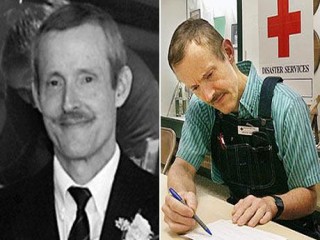
Bruce Ivins biography
Date of birth : 1946-04-22
Date of death : 2008-07-29
Birthplace : Lebanon, Ohio, U.S.
Nationality : American
Category : Science and Technology
Last modified : 2011-12-20
Credited as : microbiologist, biodefense researcher, key suspect in the 2001 anthrax attacks
0 votes so far
Beginning on 18 September 2001, while America was still reeling from major terror attacks a week earlier, several letters contaminated with the bacterium Bacillus anthracis (anthrax) were mailed. Among their recipients were Senators Tom Daschle and Patrick Leahy, and the anthrax mailings are known to have killed at least five people — a 94-year-old woman in Connecticut, a New York hospital worker, a National Enquirer photo editor in Florida, and two DC-area postal workers.
Microbiologist Bruce Ivins was the primary researcher on anthrax in the Bacteriology Division at Fort Detrick's United States Army Medical Research Institute of Infectious Diseases (USAMRIID). In 2003, for his anthrax-related work, Ivins was awarded the Defense Department's Decoration for Exceptional Civilian Service, described as the Defense Department's highest civilian honor, but eventually he became the FBI's top suspect in the anthrax killings.
In December 2001, a technician at USAMRIID told Dr Ivins that she suspected her work area had been contaminated. Ivins tested the area, confirmed her suspicions, and decontaminated her workspace, but did not notify his own superiors -- he later said he "had no desire to cry wolf". Ivins became suspicious of another contamination incident in April 2002, and on 16 April 2002 he reported finding the deadly Ames-strain anthrax, generally described as "the preferred strain for biodefense research", in the men's changing room and around his own office.
Ivins cooperated with the FBI's investigations over the six years following the anthrax mailings, but by early 2008 federal agents made it clear that he was the prime suspect. Feds tailed him everywhere, around the clock, month after month. Ivins complained that FBI agents had offered to pay $2.5M to his son if he would provide evidence incriminating his father, and the FBI confronted his daughter with photographs of the anthrax victims, telling her, "This is what your father did".
In an apparent suicide, Ivins died on 29 July 2008 after overdosing on Tylenol with codeine. For several days after his death, the media reported incriminating tidbits about him -- he was reportedly being treated for alcoholism and depression, he had been vaccinated against anthrax (like most of the workers in his section at USAMRIID), and his long-estranged brother, Thomas Ivins, described him as having "had in his mind that he was omnipotent". Eight days after his death, US Attorney Jeffrey Taylor called a press conference and announced that Ivins had been the sole suspect in the anthrax killings.
Curiously, Ivins' area of expertise was immunization against anthrax -- building better vaccines. Colleagues and experts have expressed doubt that he had the knowledge or access to equipment necessary to turn the spores into weaponized anthrax. After his death the family's lawyer said in a press release, "We assert his innocence in these killings, and would have established that at trial."
In 2011, journalist David Willman's book on Ivins, The Mirage Man: Bruce Ivins, the Anthrax Attacks, and America's Rush to War, was published. The book details Ivin's troubled history and mental problems.
Following the release of a National Academy of Sciences' report in February 2011, Congressman Rush D. Holt, Jr. (D-NJ), a physicist from whose district the anthrax letters were mailed, re-introduced legislation "to create a 9/11-style Commission, complete with subpoena power, with a mandate to review the entire matter." Senator Charles Grassley of Iowa told the Washington Post: "There are no more excuses for avoiding an independent review."
Blogger Glenn Greenwald, who has been vocal in his criticism of the anthrax investigation, argued that "[o]ther than a desire to avoid finding out who the culprit was (or to avoid having the FBI's case against Ivins subjected to scrutiny), there's no rational reason to oppose an independent investigation into this matter."
















